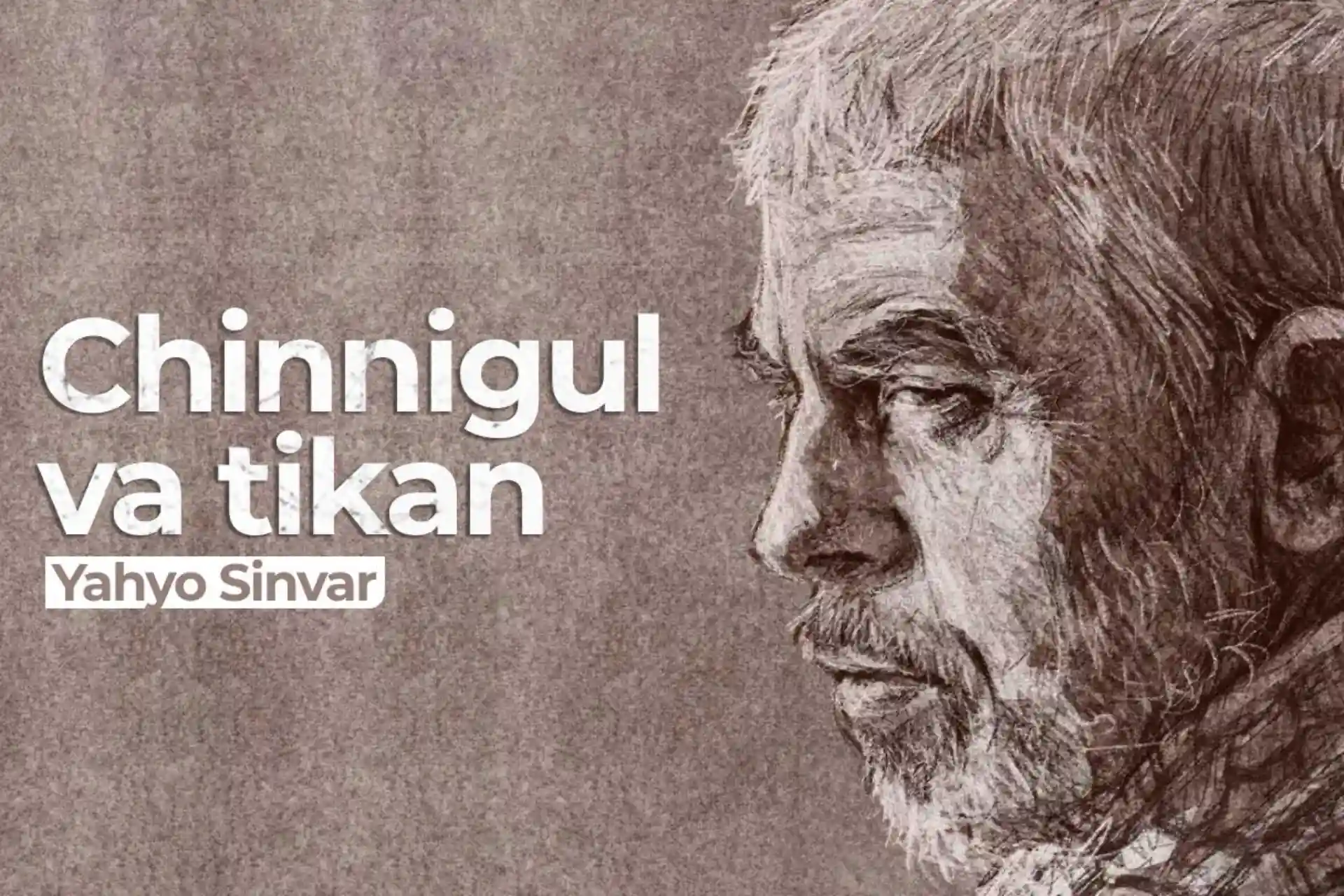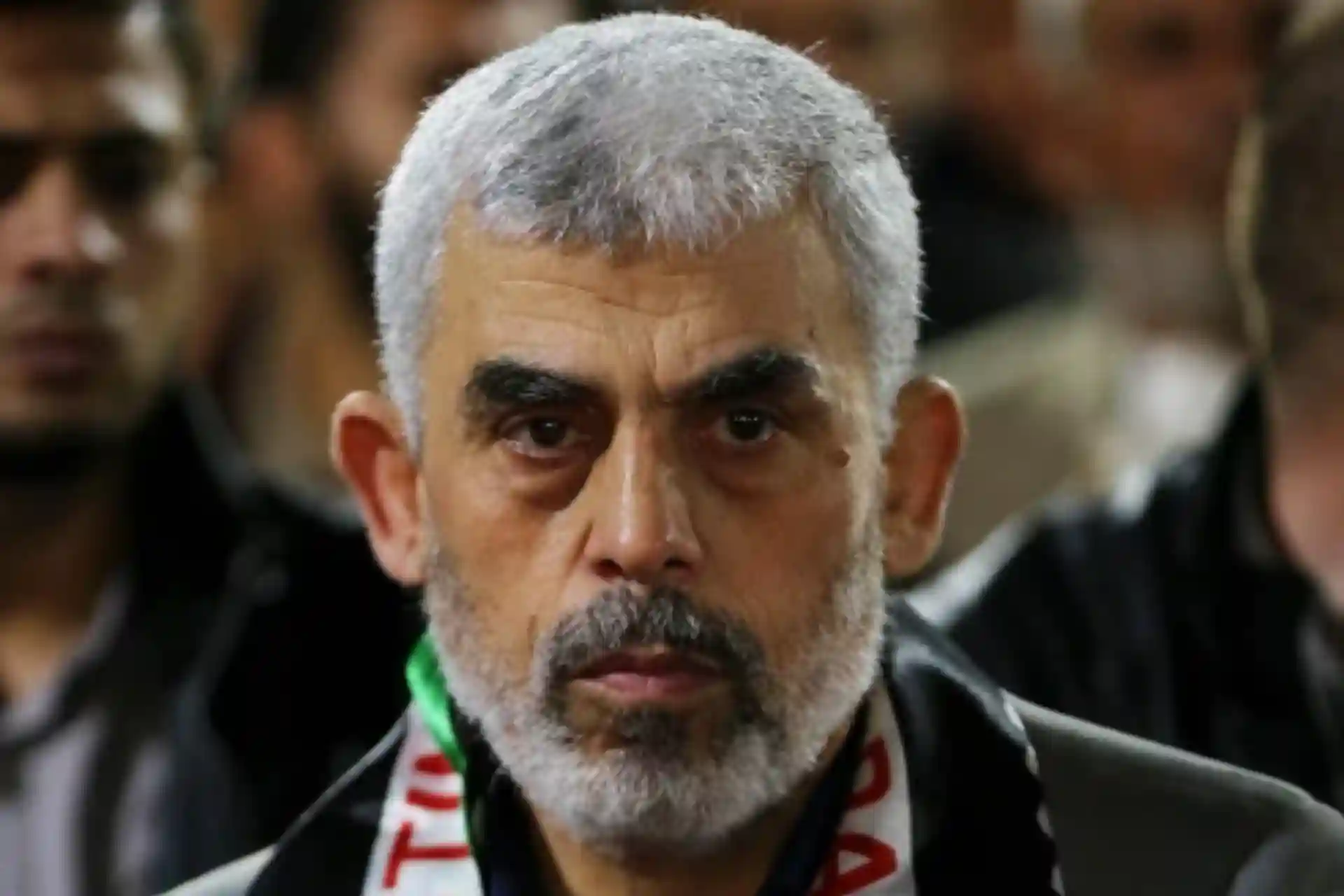"Cloves and thorns" - Yahya Sinvar (short story, part three)
We continue to publish the work "Cloves and Thorns" by Yahya Sinwar, the late commander, leader of the Palestinian liberation movement, brave fighter, loyal son of his country and nation. Translator - Ma'mur Mukhtar.
Part 1
Part 2
***
Early in the morning every day when the sun rose, the mothers carried water jugs and buckets and went to the water collection point provided by the charity fund in order to wait in line. Here, he drew water for two or three hours a day, and filled the water bottles of those whose turn it was. If they didn't make it, they had to wait for the next day and borrow water from their neighbors.
Sometimes one of the neighbors, who was careless about putting his container in line, would go ahead and try to fill it earlier. After they noticed this, they started arguing with statements like "It was my turn" and "No, it's not mine". Gradually, they pushed each other with their hands, insulted each other, pulled their hair, and sometimes even broke dishes. The bottom of the water tap was covered with broken pottery.
When my brothers and neighbors' children returned from school, they would go out to play the game of "seven stones" after finishing lunch. As for the girls, they played the game "Checkerboard". They would take a piece of alabaster or stone and draw three consecutive rectangular squares on the ground. Each cell was about a meter long and wide. A semicircle was drawn on top of the third cell. The player throws a stone into the first square and jumps into it. He will have to stand on one leg. He will have to push the stone on the same foot to the second cell and pass it himself. Then move to the third cell in the same way. Then he passes into a semi-circle and enters it himself. Only then can he put his other foot on the ground. Then it goes back the same way. If he puts his other foot down or hits the line, he loses. Then his opponent plays. Sometimes they also played the game of "jumping on the rope".
The boys sometimes played the "Jew-Arab" game. It would be divided into two groups, one of the Jews and the other of the Arabs. The representatives of each community took wood or firewood as a rifle. He shot from the rifles and said, "I hit, I fell," and the other shouted, "No, I hit first, you fell." In many cases, the Arab team had to defeat the Jewish team. Because the teams were usually divided by older, stronger children. Ataydan would make a stronger team for the Arab team.
Once a month , my grandfather used to come to the center with his and my uncle's family cards . They would come back in the afternoon. When they were returning, there was a donkey cart in front of them, in which there were products such as flour, butter, oil, and several baskets of products such as peas. When the carriage stopped in front of our door, the children surrounded it and jumped up and down to get out. As for the charioteer, he used his whip and beat the boys away from the chariot. When my grandfather unloaded the small things he brought from the cart, he took out a number of coins from his inner pocket and handed them to the cart driver. He also put the money in his pocket and drove his donkey saying "May Allah fill his place". Won't you tell the boys to run after the cart again and hang themselves? The elders would return them and open the way for the charioteer.
My mother would go to the Swedish hospital near the tents for my sister's medical examination, and sometimes she would take me too. In the section of young children and women, my sister 's weight and height were measured, examinations and analyzes were carried out. There were a lot of women with young children, they sat on a long wooden chair painted white, and if there were no seats, they sat on the floor and talked to each other.
He was talking about his pains and sufferings to the woman next to him, and he was having a heart-to-heart with the woman sitting next to him. No woman's worries were less than each other's. In this way, the women of Sark waited for their turn to share their inner pains with each other.
Outside the hospital there is a halwa f wars selling sweets. At that time , I was whimsical in order to grab a piece of candy from my mother's skirt. The reason for my insistence is that even though my father has been missing for a long time, my grandfather is not working due to his old age, and my parents would be forced to bring sweets for me when there is no work even for young and energetic young men. But our economic situation was better than that of our neighbors. All I know is that before the war, my mother had jewelry on her hands. After the war, I never saw those jewels again. My uncle was also a very good person. They received messages from us often. Every time he came, he would give money to Nam . He even gave us and my cousins coins whenever he came. We used this money to buy sweets from uncle Abu Jabir's shop.
My uncle was financially successful and had a weaving workshop. Before the occupation of Gaza, it brought textile equipment from Egypt. Even after the occupation of Gaza, the workshop continued to operate. He produced quality fabrics. After 1967, he started supplying from the South Coast to the Khalil regions. Because of his good financial situation, he helped Nam a lot. Even if they insisted that my mother would not take it, "If I don't help you, who will help you?" How do your children live?" - he would forcefully arrest him. My mother slowly shook her head, tears streaming down her face. Uncle : "Every time you cry and torment me, stop it," he tried to comfort her.
My uncle's family lives with us almost entirely . We shared a loaf of bread and drank water from the same bowl. Grandfather Mahmud told my brother and my uncle's son Hasan and opened a window through the middle wall separating us. Two courtyards have become one courtyard, except for some special aspects. My daughter -in-law's parents were in a difficult situation and although they knew that her husband was a martyr, they were unable to help. But there was often pressure from the family to remarry. And my daughter-in-law refused every time, fearing that her children would be lost.
Our days, months, and years passed like this.
One day, my sister came to our house to ask how she was doing, and before leaving, as usual, they wanted to give her money. Mother insisted that I can't take it this time. Because he felt a strong sense of embarrassment. After that, our brother found another way to help us financially. Mahmoud hired my brother and my uncle's son Hasan because he needed younger men to do small jobs in his workshop.
They didn't even have to go in the morning. They can go after school. He planned that it would be better if I gave them the monthly salary instead of a stranger. He also gave one month's salary in advance. After that, my mother couldn't turn back her hands either. My brothers Mahmoud and Hasan took on the responsibility of supporting the family and started working in the workshop. After returning from school, a long conversation would begin at the table. My mother taught them how to come to work, how to do the work with sincerity, how to do it diligently. Then he patted his shoulders and went to work. In the evening, he would welcome them as if he were welcoming cavalry commanders who were conquering a country.
It was a great plan to take care of us, even though my brothers didn't do much in my sister 's office.
In the morning, I often woke up to the sound of my father's prayer while performing ablution. I really enjoyed reciting this prayer. Then, after starting the prayer , I lay awake listening to the recitation of Surah Fatiha and other Surahs. Then he opened his hand and recited the Qun u t prayer. Since this situation will not repeat itself, I wanted to memorize those prayers.
God bless you .... »
It started with these words .
The aggressors imposed a curfew from 7:00 PM to 5:00 AM, and anyone who went out during this time would be shot. They were walking here and there at night, making sure that they did not go out during the quarantine. For this reason , he could not pray the prayer in the mosque . But he prayed the rest of the prayers with the congregation, unless he was prevented by unforeseen reasons.
There is a translation of M amur Mukhtar and a sequel


